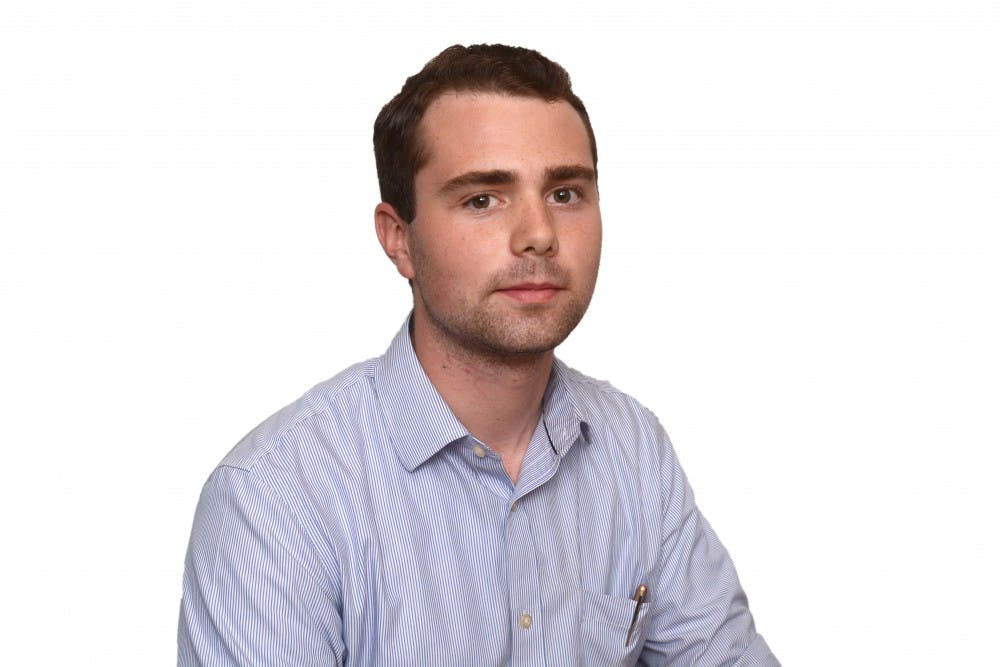I don’t think I need to spend much time condemning the protesters who prompted the cancellation of CIA Director John Brennan’s speech last Friday afternoon. Their own words and actions discredit them more comprehensively than I ever could. “I don’t think there’s any reason to allow [Brennan’s] speech,” one of the protest’s organizers told The Daily Pennsylvanian. “We do not believe that Brennan has the right to speak,” proclaimed the fliers that “Students for a Democratic Society” — the group that organized the disruption — distributed outside the venue.
I trust that most Penn students are able to spot the transparently hubristic ignorance these statements display. Not only do a small group of activists claim the right to decide what speech is and is not “allowed” at Penn, they do so in the name of a “democratic society.”
I’ll say it again just for good measure — it is nobody’s prerogative to decide what or whose views and opinions Penn students may or may not choose to hear and evaluate for themselves, least of all a ragtag handful of overzealous malcontents who fancy themselves crusaders for some twisted, narrow vision of moral purity.
But however deplorable their actions may have been, the protesters do not bear the full responsibility for the loss of a precious academic opportunity. That ignoramuses may try to silence speech on campus is a foreseeable circumstance, and the University has a duty to foil efforts to do so.
It is consistent with Penn’s commitments that the protesters were tolerated to say their bit, despite the disruptive nature of their chosen form of expression. It would have been wrong to remove the demonstrators without recognizing them. However, Penn professor Margolies and Penn Law School Dean Ruger not only recognized the protesters, but also committed to questioning Brennan about the issues they raised. Nevertheless, the chanting continued.
At this point, it should have been evident that the protesters sought to prevent Brennan from speaking, and thereby to prevent the attendees from hearing him out. Their own fliers and statements admit as much. They intended not simply to prompt Brennan to address their concerns, but to “shut down” the event entirely, denying the attendees the chance to listen and participate.
Rather than allow them that chance, the University had a duty to remove them from the premises or otherwise put a stop to their disruption. If that required arresting them for trespassing, so be it. There were students in the audience who wished to engage productively with Director Brennan, likely even to challenge him on some of the very CIA policies or programs which the protesters opposed. They sought to engage with him in precisely the way which is most conducive to the intellectual growth which universities are supposed to promote and protect. The protesters tried to deny the attendees that learning experience, and by failing to act, the University allowed them to succeed.
Consider an analogous situation. Say that SDS brought a speaker to campus to criticize the CIA. If I smuggled an amplifier into the venue and played a siren to prevent the audience from hearing the speaker, would SDS defend my “protest” as legitimate? I sincerely doubt it. It would, in fact, be the University’s duty to do whatever was necessary to ensure that the event could proceed despite me. The “heckler’s veto” is just as pernicious as any other form of censorship, and the University must protect controversial expression from it along with the rest.
Penn is not institutionally unaware of these commitments. The Open Expression Monitoring program is supposed to uphold the University’s policies on open expression under just these difficult circumstances. If Open Expression Monitors were present, however, they were utterly ineffective.
But there is even more Penn can do to prevent future instances of such embarrassing inaction, and this case shows that further effort is warranted. Event organizers should be informed about under what circumstances they may ask law enforcement and security to remove protesters from a venue. It should be explained that presiding over such removals does not make one a fascist, but may in fact be necessary to protect open expression and pluralistic values.
In any case, it is not sufficient that the University affirms its commitment to the free exchange of ideas; it must take active steps to protect that freedom from threats. If the vocal few — those who would “shut down” speakers to whom they object — are routinely suffered to do so, our campus would be an intellectually bleak place indeed.
ALEC WARD is a College junior from Washington, D.C., studying history. His email address is alecward@sas.upenn.edu. Follow him on Twitter @TalkBackWard. “Fair Enough,” formerly “Talking Backward,” usually appears every Wednesday.









